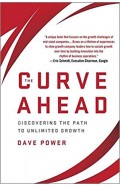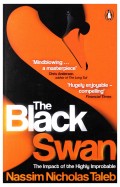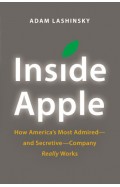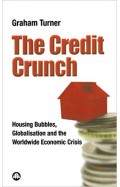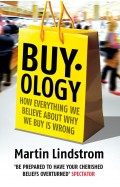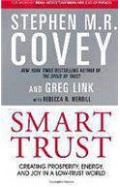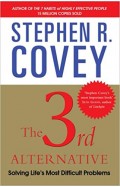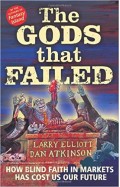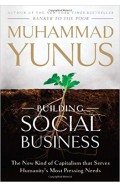- Home
- Books
- Sale
- Online Book Bazar Up To 60%
- 10% OFF
- Leap: How To Thrive in A World Where Everything Can Be Copied
Leap: How To Thrive in A World Where Everything Can Be Copied
By: Howard Yu
-
Rs 1,075.50
- Rs 1,195.00
- 10%
You save Rs 119.50.
Due to constant currency fluctuation, prices are subject to change with or without notice.
Every business faces the existential threat of competitors producing cheaper copies. Even patent filings, market dominance and financial resources can't shield them from copycats. So what can we do--and, what can we learn from companies that have endured and even prospered for centuries despite copycat competition?
In a book of narrative history and practical strategy, IMD professor of management and innovation Howard Yu shows that succeeding in today's marketplace is no longer just a matter of mastering copycat tactics, companies also need to leap across knowledge disciplines, and to reimagine how a product is made or a service is delivered. This proven tactic can protect a company from being overtaken by new (and often foreign) copycat competitors.
Using riveting case studies of successful leaps and tragic falls, Yu illustrates five principles to success that span a wide range of industries, countries, and eras. Learn about how P&G in the 19th century made the leap from handcrafted soaps and candles to mass production of its signature brand Ivory, leaped into the new fields of consumer psychology and advertising, then leaped again, at the risk of cannibalizing its core product, into synthetic detergents and won with Tide in 1946. Learn about how Novartis and other pharma pioneers stayed ahead by making leaps from chemistry to microbiology to genomics in drug discovery; and how forward-thinking companies, including China's largest social media app--WeChat, Tokyo-based Internet service provider Recruit Holdings, and Illinois-headquartered John Deere are leaping ahead by leveraging the emergence of ubiquitous connectivity, the inexorable rise of intelligent machines, and the rising importance of managerial creativity.
Outlasting competition is difficult; doing so over decades or a century is nearly impossible--unless one leaps. Ultimately, Leap is a manifesto for how pioneering companies can endure and prosper in a world of constant change and inevitable copycats.
Every business faces the existential threat of competitors producing cheaper copies. Even patent filings, market dominance and financial resources can't shield them from copycats. So what can we do--and, what can we learn from companies that have endured and even prospered for centuries despite copycat competition?
In a book of narrative history and practical strategy, IMD professor of management and innovation Howard Yu shows that succeeding in today's marketplace is no longer just a matter of mastering copycat tactics, companies also need to leap across knowledge disciplines, and to reimagine how a product is made or a service is delivered. This proven tactic can protect a company from being overtaken by new (and often foreign) copycat competitors.
Using riveting case studies of successful leaps and tragic falls, Yu illustrates five principles to success that span a wide range of industries, countries, and eras. Learn about how P&G in the 19th century made the leap from handcrafted soaps and candles to mass production of its signature brand Ivory, leaped into the new fields of consumer psychology and advertising, then leaped again, at the risk of cannibalizing its core product, into synthetic detergents and won with Tide in 1946. Learn about how Novartis and other pharma pioneers stayed ahead by making leaps from chemistry to microbiology to genomics in drug discovery; and how forward-thinking companies, including China's largest social media app--WeChat, Tokyo-based Internet service provider Recruit Holdings, and Illinois-headquartered John Deere are leaping ahead by leveraging the emergence of ubiquitous connectivity, the inexorable rise of intelligent machines, and the rising importance of managerial creativity.
Outlasting competition is difficult; doing so over decades or a century is nearly impossible--unless one leaps. Ultimately, Leap is a manifesto for how pioneering companies can endure and prosper in a world of constant change and inevitable copycats.
Leap: How To Thrive in A World Where Everything Can Be Copied
By: Howard Yu
Rs 1,075.50 Rs 1,195.00 Ex Tax :Rs 1,075.50
Zubin Mehta: A Musical Journey (An Authorized Biography)
By: VOID - Bakhtiar K. Dadabhoy
Rs 840.00 Rs 1,050.00 Ex Tax :Rs 840.00
The Curve Ahead: Discovering the Path to Unlimited Growth
By: D. Power
Rs 1,996.00 Rs 2,495.00 Ex Tax :Rs 1,996.00
The Narrow Corridor : How Nations Struggle for Liberty
By: Daron Acemoglu
Rs 2,895.00 Ex Tax :Rs 2,895.00
The Black Swan The Impact Of The Highly Improbable
By: Nassim Nicholas Taleb
Rs 3,295.00 Ex Tax :Rs 3,295.00
Inside Apple How Americas Mo Admired And Secretive Company Really Works
By: Adam Lashinsky
Rs 1,215.00 Rs 1,350.00 Ex Tax :Rs 1,215.00
Buyology How Everything We Believe About Why We Buy Is Wrong
By: Martin Lindstrom
Rs 2,795.00 Ex Tax :Rs 2,795.00
The 3rd Alternative Solving Life s Most Difficult Problems
By: Stephen Covey
Rs 795.00 Ex Tax :Rs 795.00
Building Social Business The New Kind Of Capitalism That Serves Humanitys Most Pressing Needs
By: Muhammad Yunus
Rs 400.00 Ex Tax :Rs 400.00
The Curve Ahead: Discovering the Path to Unlimited Growth
By: D. Power
Rs 1,996.00 Rs 2,495.00 Ex Tax :Rs 1,996.00
The Narrow Corridor : How Nations Struggle for Liberty
By: Daron Acemoglu
Rs 2,895.00 Ex Tax :Rs 2,895.00
No recently viewed books available at the moment.
Zubin Mehta: A Musical Journey (An Authorized Biography)
By: VOID - Bakhtiar K. Dadabhoy
Rs 840.00 Rs 1,050.00 Ex Tax :Rs 840.00
Leap: How To Thrive in A World Where Everything Can Be Copied
By: Howard Yu
Rs 1,075.50 Rs 1,195.00 Ex Tax :Rs 1,075.50
The Curve Ahead: Discovering the Path to Unlimited Growth
By: D. Power
Rs 1,996.00 Rs 2,495.00 Ex Tax :Rs 1,996.00
The Narrow Corridor : How Nations Struggle for Liberty
By: Daron Acemoglu
Rs 2,895.00 Ex Tax :Rs 2,895.00












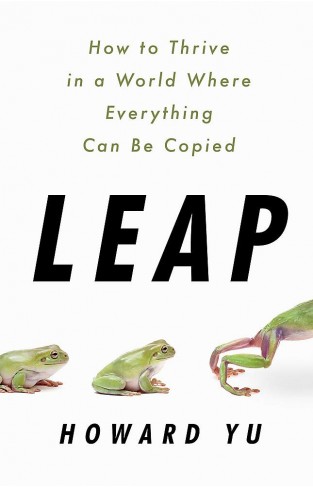
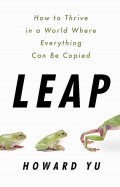
-120x187.jpg?q6)





